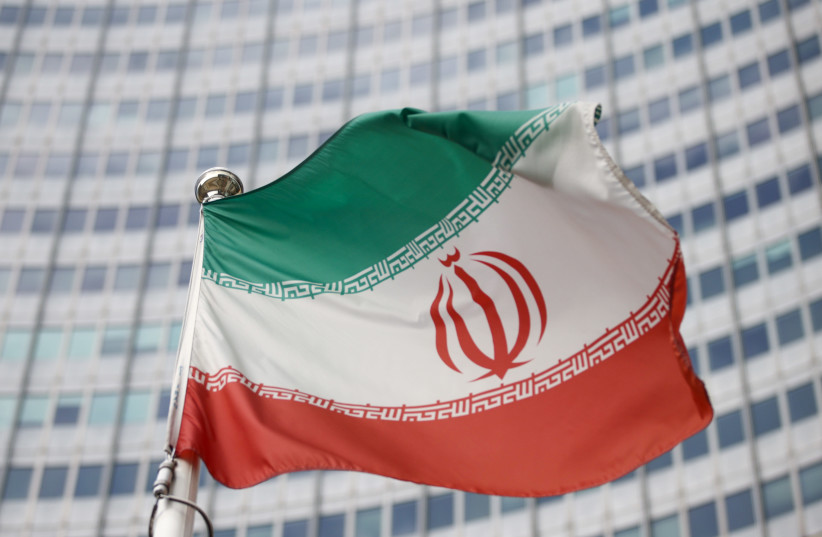Anyone following events in the Middle East in recent weeks has the impression that Iran is suicidally intent on sparking a broad regional conflict.
Proof of this is the reckless behavior of Iranian proxies causing chaos in various regions from the Gaza Strip to southern Lebanon and Iraqi territories to the Red Sea and Bab al-Mandeb.
Additionally, Tehran has, itself, has carried out direct missile attacks on an alleged intelligence headquarters in Erbil, Iraq, and targeted Jaish Al Adl facilities in Pakistani territory.
In short, Iran has become is directly or indirectly involved in all the regional flashpoints in the Middle East. The escalation is not accidental, and it raises questions about the stance and motives of the Islamic Republic.
Is Iran really eager to ignite a far-reaching regional conflict to assert its influence and strength? There is speculation about serious Israeli and Western intentions to take a tough stance with Iran and its proxies after the end of the Gaza war.

Is it time for Iran to take accountability for the chaos it has caused?
It will either reap the rewards of its decades-long investment in building, funding, training, and arming militias loyal to it, or risk losing some or all of these militias at the same time.
The escalation is thus a strategic move by the Iranian regime to demonstrate that it is capable of creating tension and spreading chaos around Israel, the West’s most important ally in the Middle East.
The message: these threats cannot be averted through peace agreements with Arab neighbors, but only through negotiations with Iran to share interests and influence. Iran has understood that the next phase requires comprehensive solutions, not half-measures or half-hearted compromises.
Everyone has realized that the time for crisis appeasement is over and that radical solutions must be found to the problems of the Middle East, especially to the Palestinian issue and, to a lesser extent, to Iranian terrorist proxies such as Hezbollah. Hezbollah has become a major strategic dilemma for Israel’s security.
Against this backdrop, Iran’s heavy involvement in regional affairs is seen as a strategic move ostensibly in defense of the Palestinian people. However, Iran’s role in this context is carefully calculated. Tehran does not want to be directly involved in a war, whether against Israel or the United States.
It is therefore expected to adhere to what it calls strategic patience. It is not about war, but about the division of interests and influence. Therefore, everything Iran does begins and ends with strengthening negotiating positions and leverage, while avoiding provoking any party to the point of all-out war.
Iran is aware that its strategic adversaries, particularly Israel and the US, are also wary of direct confrontation given the unfavorable timing for both sides (Israel is politically and militarily preoccupied with the Gaza war, and the US is not eager to enter a major military conflict in an election year).
Tehran is therefore taking a high risk that borders on recklessness. However, Iran is also aware that it can contain the reactions to actions taken by Israel and the US, no matter how major.
This can be seen in the major Israeli assassination attempts against some leaders of the Iranian Revolutionary Guards, where Iran was content to express its anger and confirm retaliation “in due course.”
THE IRANIAN stance on this issue is primarily related to the overall calculation of the indirect war it is waging. Tehran believes it can achieve strategic victories against the US and Israel without having to engage in a direct conflict that could cost the Iranian regime – suffering from internal anger and unpopularity – its survival.
However, the most serious scenario for Iranian decision-makers would be the enforcement of an international political settlement that would finally sideline Hamas in the Gaza Strip. While this scenario still depends on the outcome of the ongoing war in the region, Tehran is well-aware that it is on the verge of realization.
This means that Israel and the West must turn their attention on dealing with regional militias, especially Hezbollah in Lebanon, the Houthi group in Yemen, and Shia factions in Iraq. This implies the possibility of a coalition opposing Iran in order to, if not engage it in war, at least isolate it regionally and gradually defang it.
Therefore, Iran is working to create as much chaos as possible to reinforce the idea that it is both the problem and the solution, and that dialogue with Tehran is the only way to achieve security and stability in the Middle East. For all these reasons, Iran will not risk direct war with any party.
Tehran is aware that the current phase requires strategic patience and risk limitation in order to achieve the goals it has long sought by investing years in this plan.
The writer is a UAE political analyst and former Federal National Council candidate.
